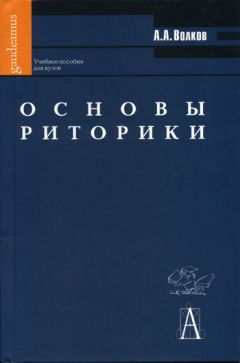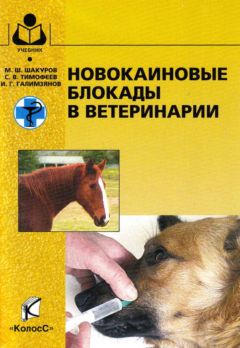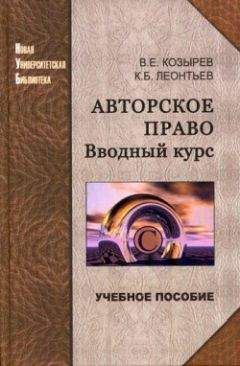Эрик Райнерт - Как богатые страны стали богатыми, и почему бедные страны остаются бедными
Reinert Erik. ‘Karl Bücher and the Geographical Dimensions of Techno-Economic Change’ in Jürgen Backhaus (ed.), Karl Bücher: Theory — History — Anthropology— Non-Market Economies, p. 177–222, Metropolis, Marburg, 2000.
Reinert Erik. ‘Full Circle: Economics from Scholasticism through Innovation and back into Mathematical Scholasticism’ in Journal of Economic Studies, 2000, vol. 27, no. 4/5, p. 364–376.
Reinert Erik. ‘Schumpeter in the Context of Two Canons of Economic Thought’ in industry and Innovation, 2002, vol. 6, no. 1, p. 23–39.
Reinert Erik. ‘Increasing Poverty in a Globalised World: Marshall Plans and Morgenthau Plans as Mechanisms of Polarisation of World Incomes’ in Ha-Joon Chang (ed.), Rethinking Economic Development, Anthem, London, 2003, p. 453–478.
Reinert Erik. ‘Globalisation in the Periphery as a Morgenthau Plan: The Underdevelopment of Mongolia in the 1990s’ in ErikS. Reinert (ed.), Globalization, Economic Development and Inequality: An Alternative Perspective, Edward Elgar, Cheltenham, 2004, p. 115–156.
Reinert Erik. ‘Benchmarking Success: The Dutch Republic (1500–1750) as seen by Contemporary European Economists’ in How Rich Nations got Rich. Essays in the History of Economic Policy, Working Paper No. 1, SUM-Centre for Development and the Environment, University of Oslo, 2004, p. 1–24; also at http://www.sum.uio.no/publications; and in Oscar Gelderblom (ed.), The Political Economy of the Dutch Republic, Ashgate, Aldershot, forthcoming 2007.
Reinert Erik. ‘German Economics as Development Economics: From the Thirty Years War to World War II’ in Jomo К. S. and ErikS. Reinert (eds),Origins of Development Economics, Zed Publications, London and Tulika Books, New Delhi, 2005, p. 48–68.
Reinert Erik. ‘A Brief Introduction to Veit Ludwig von Seckendorff (1626–1692)’ in European Journal of Law and Economics, 19, 2005, p. 221–230.
Reinert Erik. ‘Development and Social Goals: Balancing Aid and Development to Prevent ‘Welfare Colonialism’ in United Nations Department of Economic and Social Affairs, DESA Working PaperNo. 14, 2006; downloadable at http://www.un.org/esa/desa/papers/
Reinert Erik. ‘The Economics of Reindeer Herding: Saami Entrepreneurship between Cyclical Sustainability and the Powers of State and Oligopolies’ in British Food Journal, 2006, vol. 108, no. 7, p. 522–540.
Reinert Erik. ‘Institutionalism Ancient, Old and New: a Historical Perspective on Institutions and Uneven Development’, Research PaperNo. 2006/77, United Nations University, WIDER, Helsinki; downloadable at http://www.wider.unu.edu/publications/publications.htm
Reinert Erik. ‘European Integration, Innovations and Uneven Economic Growth: Challenges and Problems of EU 2005’ in Román Compañó et al. (eds), The Future of the Information Society in Europe: Contributions to the debate, Seville, Spain, European Commission, Directorate General Joint Research Centre. Institute for Prospective Technological Studies (IPTS), p. 124–152; downloadable as Working Paper No. 5 at http://hum.ttu.ee/tg/
Reinert Erik, Arno Daastol. ‘Exploring the Genesis of Economic Innovations: The Religious Gestalt-Switch and the Duty to Invent as Preconditions for Economic Growth’ in European Journal of Law and Economics, 1997, vol. 4, no. 2/3, p. 233–283, and in Christian Wolff. Gesammelte Werke, Illrd series, vol. 45, Georg Olms Verlag, Hildesheim, 1998.
Reinert Erik, Sophus Reinert. ‘Mercantilism and Economic Development: Schumpeterian Dynamics, Institution Building and International Benchmarking in Jomo К. S. and Erik S. Reinert (eds). Origins of Development Economics, Zed Books, London and Tulika Books, New Delhi, 2005, p. 1–23.
Reinert Erik, Hugo Reinert. ‘Creative Destruction in Economics: Nietzsche, Sombart, Schumpeter’ in Jürgen Backhaus and Wolfgang Drechsler (eds), Friedrich Nietzsche 1844–2000: Economy and Society, Springer/Kluwer, Boston, 2006.
Reinert Erik, Rainer Kattel. ‘The Qualitative Shift in European Integration: Towards Permanent Wage Pressures and a «Latin-Americanization» of Europe?’ Working Paper no. 17, Praxis Foundation, Estonia, 2004; also at http://www.praxis.ee/ data/WP_17_2004.pdf
Reinert Sophus. ‘The Italian Tradition of Political Economy. Theories and Policies of Development in the Semi-Periphery of the Enlightenment’ in Jomo K. S. and Erik S. Reinert (eds), Origins of Development Economics, Zed Books, London/Tulika Books, New Delhi, 2005, p. 24–47.
Reinert Sophus. ‘Darwin and the Body Politic: Schäffle, Veblen, and the Shift of Biological Metaphor in Economics’ in The Other Canon Foundation and Tallinn University of Technology Working Papers in Technology Governance and Economic Dynamics, No. 8, 2006; downloadable at http://hum.ttu.ee/tg/
Ricardo David. The Principles of Political Economy and Taxation, John Murray, London, 1817.
Robbins Lionel. The Theory of Economic Policy in English Classical Economics, Macmillan, London, 1952.
Roca Santiago, Luis Simabuco. ‘Natural Resources, Industrialization and Fluctuating Standards of Living in Peru, 1950–1997: A Case Study of Activity-Specific Economic Growth’ in ErikS. Reinert (ed.), Globalization, Economic Development and Inequality: An Alternative Perspective, Edward Elgar, Cheltenham, 2004, p. 115–156.
Roosevelt Elliot. As He Saw It, Duell, Sloan and Pearce, New York, 1946.
Roscher Wilhelm. Principles of Political Economy, Callaghan, Chicago, 1878.
Ross Eric. The Malthus Factor: Poverty, Politics and Population in Capitalist Development, Palgrave Macmillan, London, 1998.
Ruggiero Renato. ‘Whither the Trade System Next’ in Jagdish Bhagwati and M. Hirsch (eds), The Uruguay Round and Beyond — Essays in Honour of Arthur Dunkel, The University of Michigan Press, Ann Arbor, 1998, p. 123–141.
Sachs Jeffrey. The End of Poverty: Economic Possibilities for Our Time, Penguin Press, New York, 2005.
Sachs Jeffrey, Andrew Warner. ‘Natural Resource Abundance and Economic Growth’ in National Bureau of Economic Research Working Papers, 5398, National Bureau of Economic Research, 1995.
Said Edward. Orientalism, Vintage, New York, 1978.
Samuelson Paul. ‘International Trade and the Equalisation of Factor Prices’ in Economic Journal, 1948, vol. 58, p. 163–184.
Samuelson Paul. ‘International Factor-Price Equalisation Once Again’ in Economic Journal, 1949, vol. 59, p. 181–197.
Samuelson Paul. Economics, 10th edn, McGraw-Hill, New York, 1976.
Sanness John. Patrioter, intelligens og skandinaver. Norske reaksjoner på skandinavismen før 1848, Universitetsforlaget, Oslo, 1959.
Schmoller Gustav. The Mercantile System and its Historical Significance, Macmillan/Kelley, New York, 1897/1967 (translated from articles in the journal Schmoller’s Jahrbuch).
Schmoller Gustav. Wechselnde Theorien und feststehende Wahrheiten im Gebiete der Staats- und Socialwissenschaftlichen und die heutige deutsche Volkswirtschaftslehre. Rede bei Antritt des Rectorats, Büxenstein, Berlin, 1897.
Schoenhof Jacob. The Destructive Influence of the Tariff Upon Manufacture and Commerce and the Figures and Facts Relating Thereto, Free Trade Club, New York, 1883.
Schumpeter Joseph Alois. Theory of Economic Development, Cambridge, Harvard University Press, Cambridge, Mass., 1934; a much-changed English translation of the German original from 1912 Schumpeter, Joseph Alois, Business Cycles, 2 volumes, Macmillan, New York, 1939.
Schumpeter Joseph Alois. History of Economic Analysis, Oxford University Press, New York, 1954.
Schurz Carl. Life of Henry Clay, Houghton Mifflin, Boston, 1887.
Senghaas Dieter. Von Europa lernen. Entwicklungsgeschichtliche Betrachtungen, Suhrkamp, Frankfurt, 1982.
Serra Antonio. Breve trattato delle cause che possono far abbondare l’oro e l’argento dove non sono miniere, Lazzaro Scorriggio, Naples, 1613.
Singer Hans W. ‘The Distribution of Gains between Investing and Borrowing Countries’ in American Economic Review, 40,1950, p. 473–485.
Smith Adam. The Theory of Moral Sentiments in Collected Works, Cadell and Davies, London, 1759/1812.
Smith Adam. The Wealth of Nations, University of Chicago Press, Chicago, 1776/1976.
Smith Erasmus Peshine. A Manual of Political Economy, Putnam, New York, 1853.
Sombart Werner. Krieg und Kapitalismus, Duncker & Humblot, Munich & Leipzig, 1913.
Sombart Werner. Luxus und Kapitalismus, Duncker & Humblot, Munich & Leipzig, 1913.
Sombart Werner. Der moderne Kapitalismus, 6 volumes, Duncker & Humblot, Munich & Leipzig, 1928; partial Spanish translation, El Apogeo del Capitalismo, 2 volumes, Fondo de Cultura Económica, Mexico, 1946; partial Italian translation, II Capitalismo Moderno, Unione Tipografico-editrice Torinese, Turin, 1967; partial French translation, L’Apogée du Capitalisme, 2 volumes, Payot, Paris, 1932.
Soros George. George Soros on Globalization, Public Affairs, New York, 2002.
Spann Othmar. Types of Economic Theory, Allen & Unwin, London, 1930.
Stangeland Charles Emil. Pre-Malthusian Doctrines of Population. A Study in the History of Economic Theory, Kelley, New York, 1904/1966.
Steuart James. An Inquiry into the Principles of Political Economy: being an Essay on the Science of Domestic Policy in Free Nations. In Which are Particularly Considered Population, Agriculture, Trade, Industry, Money, Coin, Interest, Circulation, Banks, Exchange, Public Credit, and Taxes, 2 volumes, Millar & T.Cadell, London, 1767.
Stiglitz Joseph. Globalization and Its Discontents, Norton, New York, 2002.
Strindberg August. De lycksaliges ö och andra berättelser. Svenska öden och äventyr, Stockholm, Åhlén & Åkerlund, Stockholm, 1882/1913.
Taussig Frank. The Tariff History of the United States, Putnam’s, New York, 1897.
Tawney Richard. Religion and the Rise of Capitalism. A Historical Study, J. Murray, London, 1926.
Thünen Johann Heinrich von. Der isolierte Staat in Beziehung auf Landwirtschaft und Nationalökonomie, oder Untersuchungen über den Einfluss, den die Getreidepreise, der Reichtum des Bodens und die Abgaben auf den Ackerbau ausüben, Penthes, Hamburg, 1826.
Tilly Charles. Coercion, Capital and European States AD 990-1992, Blackwell, Cambridge, 1990.
Tocqueville Alexis de. Democracy in America, University of Chicago Press, Chicago, 1835/2000.
Tubaro Paula. ‘Un’esperienza peculiare del Settecento italiano: la ‘scuola milanese’ di economia matematica’ in Studi Settecenteschi, 20, 2000, p. 193–223.
UNCTAD, United Nations Conference on Trade and Development (2006), The Least Developed Countries Report 2006. Developing Productive Capacities, Geneva; http://www.unctad.org/en/docs/ldc2006_en.pdf
Uztáriz Gerónimo de. The Theory and Practice of Commerce and Maritime Affairs, Rivington & Croft, London, 1751 (original Spanish 1724).
Veblen Thorstein. ‘Why is Economics not an Evolutionary Science’ in Quarterly Journal of Economics, XII, July 1898, p. 373–397.
Verein für Sozialpolitik, Verhandlungen der Eisenacher Versammlung zur Besprechung der Sozialen Frage am 6. und 7. October 1872, Duncker & Humblot.
Vernon Raymond. ‘International Investment and International Trade in the Product Cycle’ in Quarterly Journal of Economics, May 1966.
Verri Pietro. Meditazioni sulla economia politica, Ivone Gravier, Genoa, 1771.
Wade Robert. Governing the Market: Economic Theory and the Role of Goverment in East Asian Industrialization, Princeton University Press, Princeton, 1990.
Walde Otto. Storhetstidens Litterära Krigsbyten. En Kulturhistorisk- Bibliografisk Studie, Almquist & Wicksel, Uppsala, 1920.
Warsh David. Knowledge and the Wealth of Nations. A Story of Economic Discovery, Norton, New York, 2006.
Wells Louis T. (ed.). A Product Life Cycle for International Trade? Harvard Business School, Division of Research, Boston, 1972.
Wolf Martin. ‘The Morality of the Market’ in Foreign Policy, September/October 2003, p. 47–50.
Wolf Martin. Why Globalization Works, Yale University Press, New Haven, 2004.
Wolff Christian. The Real Happiness of a People under A Philosophical King Demonstrated; Not only from the Nature of Things, but from the undoubted Experience of the Chinese under their first Founder Fohi, and his Illustrious Successors, Hoam Ti, and Xin Num, Printed for M. Cooper, at the Globe, London, 1750.
Yonay Yuval. The Struggle over the Soul of Economics, Princeton University Press, Princeton, 1998.
Young Allyn. ‘Increasing Returns and Economic Progress’ in Economic Journal, 1928, vol. 38, no. 152, p. 527–542.
Примечания
1
Стагфляция = стагнация + инфляция; этот термин изобретен для описания периодов упадка, в которые происходит высокая инфляция.
2
Рикардо (1772–1823) был английским политическим экономистом, который защищал международную теорию торговли на основании сравнительного преимущества: по ней страна должна была специализироваться в том, в чем она относительно наиболее эффективна (наименее неэффективна) по сравнению со своим торговым партнером. Его книга «Принципы политической экономии и налогообложения» вышла в 1817 году.




